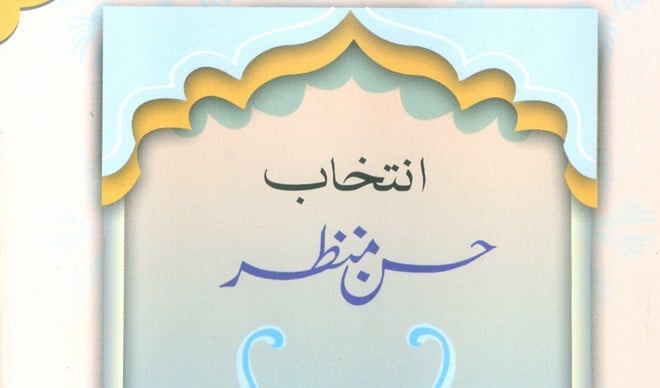

Hasan Manzar, a good short story writer, is not that well known among the local literati because he spent many years away from Pakistan. His profession of being a medical doctor and then being employed on a merchant naval vessel took him to places and ports which were away from the country he had chosen to be his own, like so many others who migrated after 1947.
He did not while away time on those voyages and sea journeys. He wrote not only about the experience of being on water with land thousands of miles away but also peoples of so many nationalities he happened to meet on every port of call.
That gave him a new perspective that was different from the writers who primarily breathe the air of one tradition. Their writings may be well grounded but may not escape the charge of being parochial. With a traveller, who visits so many diverse places and meets and interacts with people of all hues and professions, the charge can be different -- like taking only a surface interest without being fully rooted in the affairs of people of that particular culture.
But Hasan Manzar escapes that charge. He travelled a lot and mixed with people of different cultures. He kept his eyes and ears open and suspended his disbelief willingly.
Usually, the problem arises when the value judgment is pronounced prematurely, before fully taking the facts of the case into consideration. He put the criteria -- that he may have carried from his own culture and religion -- on the back burner. Instead he just relished in the vast variety of system, values and staggering numbers of cultures where people live according to the principles that they have derived from their own history and heritage.
Writers in Urdu with such vastness of perspective are rare because many have either been homebound or if they have ventured out, it has been to the erstwhile home country Britain or the surrogate home country, the US. The vast arrays of cultures and traditions have defied them due to the lopsided relation or lack of equation between the mother country and the former colonies. They end up by taking up a defensive posture and lashing out at the former masters saving them from being branded as promoters of comprador culture.
Many writers have ventured forth into the sea and filled their long hours with writing. Joseph Conrad is one such outstanding example. But in the 19th century, the world was exotica and the lands beyond Europe enmeshed in mystery and adventure; therefore, the exposure to that culture was a task for a writer to evocate. And in the 20th century that sense of adventure had dulled due information explosion and easy access to places, with only the diversity of cultures and traditions remaining intriguingly valid.
In this selection by Asif Farakhi, the locale and characters of almost all the stories are from the land Hasan Manzar grew up in and spent the formative years of his life. There are no exotica, the glamour of distant lands nor the praise or condemnation from a moral point of view of other people and cultures, actually providing him with a moral landscape too varied to jump to a definitive moral standpoint. The value judgment only becoming relative with the edge of finality blunted. If there is mention of sea or the maritime journeys it is about those sailors who stay away from home and live a life buying sex, happiness and disease at the ports, their lifestyle restricting the development of long terms relationships. They cannot have them on the ports due to short stay there or with their families due to long periods of absences.
In the stories, the characters from this land mostly from the middle and lower classes are living a life of ingrained differences and this has been narrated in a non-dramatic style.
Usually, these differences or prejudices are so embedded in the cultural matrix of the society that they are taken for granted. Without raising a slogan or a banner of revolt, he builds situations in which the prejudice are revealed, but all very understated.
This is the real strength of Hasan Manzar -- that as a narrator he stays two feet behind letting the character and the situation speak for themselves.
These stories have an overwhelming sense of losing ones homeland, having migrated from one region to the other. This discrepancy, though carrying material consequences, is cast more through spiritual and cultural dimensions. These carry more weight and form the underlying current of many of the stories by the author. It is usually the weak or the poor who suffer the most and in this case it is the women who take the brunt of the various levels of discrimination. These women characters suffer the most because of prejudices and dislocations and have been sketched or drawn up with great deal of sympathy.
Hasan Manzar should have been acknowledged more than he has been. The selection is a representative of various writings of the author. It gives a good account of his creative ability and, it can be said without fear of any retraction that, he is one of the better Urdu fiction writers.